
Despite the heroic title of this blog, for the better part of two years pain was the boss of me. I hurt in multiple places and as a movement professional it was embarrassing. I kept saying to myself: “I’m a professional, how can I hurt so badly?” Or “I can figure this out.” I hope this blog inspires us all to keep searching for intelligent movement professionals and formats that will improve our postural priorities so that we can kick chronic pain to the curb!
In purely medical terms, pain is a negative sensory and emotional experience relating to tissue damage. Chronic pain lasts longer than acute pain and often the cause is imprecise as was my case. Anxiety, stress, depression, anger, reduced mobility, lack of sleep and fatigue are the most commonly reported side effects of chronic pain. I had them all.
Pain has its purpose but when it hangs around too long, it is severely limiting.
Often times when we go to a doctor, we don’t get the results we had hoped for so we give up, resolving to “live with the pain.” Alternately, many people in pain are motivated to take pain medication. Annually, about 5 million Americans use pain meds without a prescription and last year 15,000 of them died doing so.[1] Clearly this is not the best solution to handling chronic pain.
Back in the day, doctors used to prescribe rest for all conditions of pain. Now we know better: chronic rest de-conditions us, immobilizes our tissues and often makes the pain worse. Left untreated, chronic inflammation leads to the release of complex body chemicals which reduce nociceptor thresholds (more on nociception in the next blog). This is why hypersensitivity to pain can persist long after the original injurious phase has passed. Over time, when left untreated pain can begin to define who we are. Before we know it, pain is defining how we live our lives and it’s not pretty.
The good news is that pain is an incredibly powerful motivator for positive change! Here are a few tips on how to recover from the depths of discomfort:
• Pain is not the boss of you! Eradicate self-limiting thoughts in your mind first, the body will catch up.
• Resist “learning to live with it,” it only gets worse as you get weaker.
• You are not your pain so avoid possessively identifying with it (lest it believes it really belongs to you and decides to stick around!)
• Become aware of your postural habits.
• Move your body a little more and in different ways each day.
• Allow pain to be your teacher. Rest when you need to, utilize support, but then go ahead and gingerly push the proverbial envelope so that you allow yourself to move beyond the “fear of movement” threshold.
The following are but a few ways in which working with Jill Miller, Yoga Tune Up® Certified Teachers, DVDs and Therapy Balls can help you get your life back:
• Functional, anatomy-based corrective exercises and targeted trigger point massage with trained Yoga Tune Up® teachers and teacher trainers can be your partners in finding smarter ways to stand, sit, sleep and eat.
• Used in combination, the YTU poses and the Therapy Ball practices heighten our proprioception. The practice empowers us to address the many hidden issues in our tissues.
• Yoga Tune Up® postures are designed to stabilize the core and spine, a problematic area for 30% of chronic pain sufferers.
• YTU strengthens weak accessory muscles. Often times we under-use, mis-use or abuse our prime muscles until they spasm.
• Yoga Tune Up® increases circulation of blood oxygen and stimulates movement of lymph and metabolic waste so that injured tissues can recover more efficiently.
• YTU poses improves joint range of motion where necessary and stabilizes where we are hyper-mobile.
• YTU actively rehabilitates our respiratory muscles, releases our inhibitory muscles and enables us to breathe better which results in improved oxygenation and production of feel-good hormones that derail pain signaling.
• The unique grippy texture of Therapy Balls “skin roll” our soft-tissue myofascial layers. Skin rolling effectively “tunes up” frazzled nerve bundles by stimulating the inhibitory large-fiber inhibitory neurons to reduce the frequency and intensity of the pain signals from our small-fiber, quick-adapting pain nociceptors (this means the invisible pain neurons in our skin and muscles learn another language besides “ON”)
If, like me, you have been in pain for a while then getting out of pain is going to require a serious and dedicated practice.
Sharp eyes can help you break your own pain habits: I recommend finding a qualified YTU Teacher in your area.
More:
• Write in “YTU Practice” on your calendar.
• Buy your Ball Kit & YTU practice DVDs
• Sign up for local classes and workshops, Immersions or Teacher Trainings
• Sign up for YTU at Home so you can start moving, rolling and reprogramming your neural pain pathways.
Make “No More Pain” your top priority and DO THE WORK!
Learn about our Therapy Ball Programs
Watch our Quickfix video for upper back pain.
Watch our Quickfix video for lower back pain.
Discover more solutions for hip pain.
[1] Unintentional Drug Poisoning in the United States, National Center for Injury Prevention and Control, Centers for Disease Control and Prevention, July 2010.
http://www.cdc.gov/HomeandRecreationalSafety/pdf/poison-issue-brief.pdf


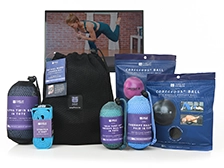
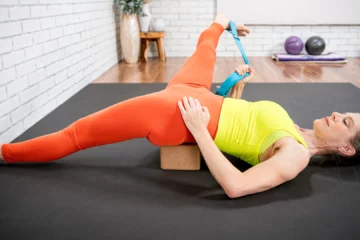
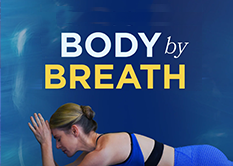
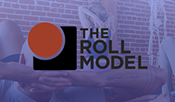
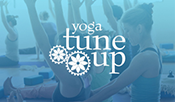


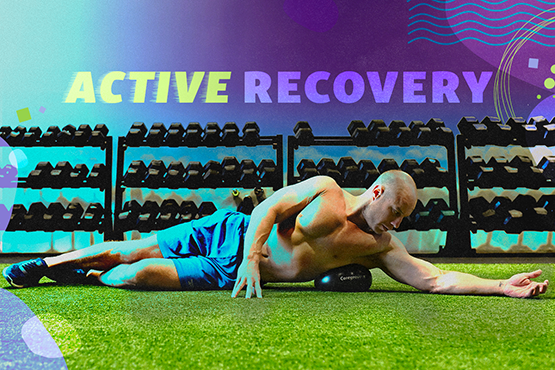
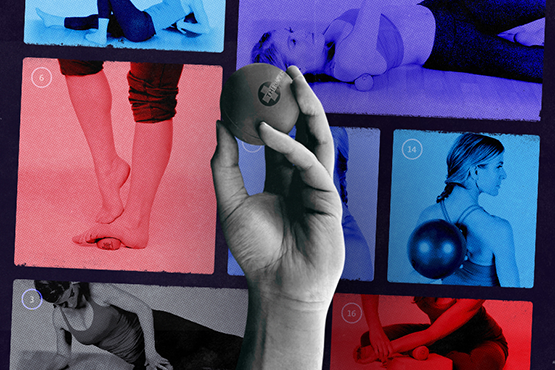
Hi Dinneen,
I’ve read quite a bit on retraining pain but hadn’t heard about skin rolling stimulating the inhibitory large-fiber neurons to reduce the frequency and intensity of the pain signals from our small-fiber, quick-adapting pain nociceptors. Thanks for the information!
Pain is so tricky and so personal! I love Todd Hargrove’s explanation and exploration of pain in his “Guide to Better Movement.” I would never go as far as to claim that my injuries have been blessings – but they have definitely been some of my greatest teachers and drivers toward learning. This is an important list. I also remember the moment when a practitioner reminded me that the pain wasn’t a sentence I would have forever. I think planting that seed was the first step in allowing my nervous system to begin to shift as well. We have to believe in our body’s ability to shift and change and heal.
I was in pain for years and my teacher, Melissa Williams taught me rolling techniques and exercises that changed my life, changed my relationship to pain, and reduced my pain drastically. We are NOT our pain and YTU has solutions for all types of pain.
Like a lot of other YTU students I have a history of chronic pain too. I decided to add some ‘healthy’ movement in my live so that was when Pilates and Essentrics training popped up… my chronic back pain is really gone! And now I can add the YTU exercises and rolling with the balls of course 😉 I like the idea of schedule YTU and rolling in my calendar as maintenance or even prevention session: self care is key, also as a teacher!
Thank you for highlighting the importance of self-care when it comes to chronic pain. Your tips are very practical and provide a way forward rather than getting stuck in the cycle of symptoms that manifest with pain syndromes. With the current opioid crisis, safer treatments that focus on recovery rather pain medication alone, are even more important.
In addition to all this great advice, there are some terrific mindfulness techniques that one can incorporate into their lives to change their relationship to pain. The formula is basically that pain is inevitable, suffering is optional. It’s not easy and it’s not a quick fix, but it can have transformative results.
I really like the title of this blog! Like you, pain was the boss of me for a long time. Until this past year, when I intentionally started to make the subtle changes I needed to. And yes, this blog has “inspired me to keep searching for intelligent movement and professional formats that will improve my postural priorities and kick pain to the curb”. I will be 56 years old next month and my body hasn’t been this pain-free in a very long time. I am so glad I don’t have give up and will continue to move for as long as I can! The YTU balls are a new tool for me and wait to try them on family and future students.
Write in “YTU Practice” on your calendar. Definitely will start doing this. It’s so much easier to find time to attend a Hot Vinyasa Class or some other activity that leaves you dripping in sweat. How often do we schedule self-care, a massage or simply rolling for 5 minutes on our Therapy Balls. This post resonated with me a lot as I also suffer from chronic pain. Thanks for sharing!
Thanks for the reminder that we need to “eradicate self limiting thoughts in the mind first”. Too often, we jump to all the tools and methods that can ease the pain without first addressing our psychological relationship and emotional reaction to the pain and how those responses trigger many other outcomes in the physical body. One of my favorite parts of this YTU training is uncovering the science behind the mind-body connections that have made yoga such an important tool in health and healing. Thank you!
Reminds me of my Dad so much – but like you said in class – our family are the ones who don’t listen to us. It’s amazing what can happen if we just move a little more and differently each day, that’s all I’m trying to start him with.
For my own personal practice I love the “it takes a team” idea. Really excited to take this back home and “create” this team – doctor, pt, massage therapist. Oh, it’s endless!
What you mentioned are so true. I broke my arm when I was younger, after the cast treatment, I didnt really use or move the year after because I was so afraid of the pain. During the next few years, the pain keep coming back which bothered me A LOT but there is no General practitioner, specialists or bonesetter can help. Until I met a stretch professional and I start to get to know my body and be aware of my body, I start stretching and ROLL ON my injured area. At first, it was like the end of the world, but then I realized this is just the beginning, the beginning of self-help.
Great advice! I especially love that the first thing you suggest to down regulate is to breathe, so simple yet so powerful. Also not allowing our pain to get the best of us when it happens, forging through, not shutting down that area of our body, allowing the “fuzz” to get worse!
Thank you for this informative and helpful post. During my YTU training, my body told me on numerous occasions that I needed to make some changes. With the help of my therapy balls and YTU poses, I am finally managing my chronic pain and slowly but surely healing my body.
I can definitely relate to this. Whether it’s diet or not enough movement, I have felt sore all over.
We can often get stuck in negative loop patterns, most answers are fairly simple. We need to execute on these consistently.
(Also love the way this is written with the problem at the start and offer to find a teacher at the end.)
This is such an important article. It is astounding how many people live their lives in constant pain. I’ve noticed it even more as I embark on my journey as a yoga teacher. As soon as I tell people, they immediately come back with a question about the weakness and pain in their bodies. People in our society are starving for dynamic movement and connection with their bodies. The problem, however, is that we also live in a culture where it is so common to just pop a pill for whatever ails you — no matter how big or small. I love how accessible Yoga Tune Up® is for all bodies, ages, and fitness levels. Some of the chronic pain in my life went unnoticed until I started practicing yoga with my YTU teacher. Getting in touch with and listening to messages from my body has been one of the greatest gifts and I can’t wait to usher students into new discoveries about their own bodies and the wisdom within. The more we learn about our body cues, the more we take yoga off the mat and into our daily lives. It wasn’t until I started practicing YTU that I started to notice how my habitual movements were affecting me.
Thanks for the great article, and the great reminder! So simply stated and you offer easy cues to incorporate into daily routine. I especially like your reminder ‘become aware of your postural habits’. I tend to start my day with some rolling and breathing on the therapy balls, feeling empowered and embodied. Yet, as my day goes on, I find myself collapsing and contracting so that when I get back into my car after work I have to adjust the rear view mirror to accommodate my shrunken spine! I will definitely be paying more attention throughout my work day and making adjustments as I go!
A great post sharing information tips & strategies to deal with chronic Pain,
Love your statement , “Pain is not the boss of you! Eradicate self-limiting thoughts in your mind first, the body will catch up” & Resist “learning to live with it,” it only gets worse as you get weaker. So true! learning “Functional, anatomy-based corrective exercises and targeted trigger point massage with trained Yoga Tune Up® teachers and teacher trainers” such as yourself has opened my eyes again to feeling empowered in my own self care and sharing it with my clients. Thank You Dinneen
Great article, unfortunately for a lot of people pain is their normal. But it doesn’t have to be! I heard someone say a few years ago that people get attached to their pain and it took me a while to realize how true that is. When people decide to just live with it and suffer through it instead of doing something about it. And as you were saying that just makes it worse .
Very interesting and informative article. As a physiotherapist I often strive to find different ways to teach my clients ways to deal with and treat their own chronic pain. The Tune Up balls are an excellent way to promote self empowerment and heal at the same time. Excellent ideas! Thank you.
Thank you for saying all of this! The mantra “no pain, no gain” has somehow found its way into a practice that’s supposed to be healing. Many people want yoga to be everything: cardio, strength training, and flexibility all while becoming enlightened. True elevated thinking would be knowing when to down level and regress to study body imbalances and soothe pain. Pain isn’t normal!
Dinneen, I really appreciate this very informative and motivating article. As someone who has been dealing with chronic pains off and on for the last 6 years, it’s always good to be reminded of how far my practice has helped me come and how much I can still work on. It was finding relief from my own pain that made me want to become a yoga teacher so I could share what I’d learned with others. I’m excited to now be able to add some wonderful Yoga Tune Up® tools to my repertoire and am eager to learn more!
So true, we shouldn’t let pain be the boss of us. Wise words. Great reminder to listen to my pain, learn my lessons, and not let it take over my identity. YTU has a lifesaver for many of us! Thanks for sharing your journey.
This post is so about the way many people live with the disability of chronic pain today. They define themselves by their limitations instead of their infinities. They accept it as gospel when they are told that they will need surgery or need to be on pain pills for the rest of their lives. You are not the sum of your pain. Begin to take aN active role in your healthcare,by practicing self-care. Seek out people who have experience in the modalities of corrective exercise and self massage. I recommend Yoga Tune up corrective exercise and the therapy Balls. My interest in Yoga Tune Up was peaked by Dinneen and she continues to inspire me.
I think “Pain Your Not The Boss Of Me ” should be a Knead to read yoga tune up block. First step don’t let your pain be a constraint in living the life you want too.
Movement is Medicine! As someone who has been in chronic pain (and then was in 2 car accidents back to back so that of course didn’t help), fear does take over and even when we think we are rehabbing in a smart way by avoiding certain poses, sometimes we are creating new blindspots or tension patterns out of getting comfortable doing the ‘safe’ exercises or movements. It’s all about balance, as in our nutrition and work/play, finding that perfect medium of rest, stablizing/strengthen and pushing into the unknown or something new.
I love it! Albert Einstein’s definition of insanity was to keep doing the same thing over and over again and expecting different results. I think this article summarizes well that sentiment. By encouraging us to explore new techniques, break old habits and actively seek solutions (not taking a victim mentality to pain), we can maybe stop being ‘insane’ with pain!
Thank you for this article! I’m totally going to print it out and pin it on my board as a tool. I think its important to realize as a movement professional that I need help and need to work on my own body and not neglect the signs that are there. I think sometimes I feel invincible or something because I’m a movement professional. But this is not true. I’ve waited in the past months and months before I did something about my pain because I thought it would just go away and then even after that I only sort of took it seriously. I appreciate the break down of this blog, thank you thank you 😉
I have clients who I try to help with their chronic pain but their fear of making the pain worse stops them from exploring methods of living better in their bodies. My job is to help them find the strength of facing their fear and trusting. Thanks for this
Dinneen, thank you so much for this article (and for directing me to it). I really appreciate your reminder that getting out of pain is a “serious and dedicated practice” and that pain is the teacher that can guide us through this work…it can be so easy to become victims of our pain! That said, as we work to address the physical imbalances in our bodies that cause pain, I think it’s also important to acknowledge the emotional trauma that can sometimes (often? usually?) accompany a long dance with chronic pain. Sometimes even when the cause of the pain subsides, if the body can hold onto the patterns developed to protect a weak area, there can often be emotional holding in those areas as well. It’s amazing to see the emotional shift that can come with releasing/reteaching those areas!
I love how Yoga Tune Up highlights the possibility of working intelligently to release the physical and emotional trauma of chronic pain.
Dinneen, you totally hit the mark. I’m going through YTU L1 right now with Jill, and I discovered that #1 I’ve been doing things that have been causing my shoulders to tolerate pain. It was devastating to me to find that downward facing dog was a problematic pose for my external rotators in my shoulders. Point #2 about experiencing emotions, I even cried that night about something totally unrelated, and broke down again in class because of the discovery that ddog is damaging to my shoulders. I am a yoga teacher, and I was like how am I going to be a good yoga teacher if I can’t even do downward dog myself?? I’ll figure it out. Lol! Point #3, I try not to go to the doctor often, and I would actually rather “live with the pain” than take meds. Point #4 I love the good news you listed!! And it’s such a positive way to look at my situation and encourage positive change!! Thank you!!! I’ll be taking a YTU class from master teachers very soon!
Eradicating self limiting thoughts and not defining yourself by your pain are such seemingly simple concepts and yet, I imagine, challenging to even the master yogi. So your positive ref-ramimg statement, “Pain is a powerful motivator”, is a wonderful way of looking at the otherwise limiting belief that pain is telling us to stop in our tracts and turn backward. I also love this thorough and yet concise list of the benefits of YTU. I’ll be printing this out and keeping it handy as I explain what i am up to to my friends and clients!
As a massage therapist, I have witness and been the confidant of many people to whom pain became the center of their universe. A friend once said: “but it is just pain”, taking away all the power most associate to their pain on an emotional and psychological level. This comes from his belief that it is always possible to get rid of pain with proper guidance, therapy and compassion. So instead of having the negative focus on pain, have the extremely positive focus on getting back to optimal health with effective modalities such as the ones listed here.
Thank you Dineen for reminding me that “pain is not the boss of me!” You provide wonderful tips for everyone who is ready to say goodbye to pain in their lives. I personally feel that I do need to listen to my pain and allow it be my teacher in my healing process. I already feel that learning to be a student of my own body, and using my Yoga Tune Up® balls and poses has already started me down the path of personal healing and a pain free life.
Thank you for revealing what you have personally been through…I wanted to hear even more…but another time. There is a long list of YTU® can do, a good resource. I love the explanation regarding skin rolling and what it does for our nerves. It’s interesting to read the comments as well…this is a hot topic. Thank you.
These comments are incredibly vital and meaningful feedback for me but also for our entire community. As movement educators part of our work is assisting people in discovering the most healing and productive way to relate to their bodies. Pain is a difficult subject to understand and it’s even more difficult to be able to move and live well while in pain. Thanks for weighing in everyone!
I work with chronic pain patients, so these are some great tips for me to take back to them. I actually suggest the opposite philosophy to them though–instead of saying “Pain, I hate you, I’m going to fight you until your gone,” I get them to say, “Pain, the door of my heart is open to you, whatever you’re going to do to me, come in,” This gets patients out of denial and into acceptance; out of self-dissociation into self-love; out of blind spots and into awareness. From that foundation, then they can really start to transform and progress.
It’s so telling that Dineen’s first three pain management tips address the individual’s intellectual and emotional reactions to pain. She notes that pain can be a teacher and can inspire action: it can teach an individual about his/her physical body and can inspire a dedicated response to the physical causes of discomfort, but it can also provide a field for exploring yoga’s deeper work–the observation and eventual quieting of the mind’s responses to both external and internal stimuli.
Hi Teachers. I’m enjoying everyone’s personal story sharing on the subject of pain, thank you all for taking the time to weigh in!
Although in chronic pain situations, the body does receive a steady flow of pain signals from the brain, all pain does not come just from the brain. Please be aware of potentially oversimplifying because it’s not really correct and also when speaking with clients or loved ones who are in chronic pain, this phrase can potentially be misunderstood as “it’s all in your head”. I know this was not the intent of the above comment, but I also know that people in pain can be extremely sensitive to others’ observations and suggestions regarding their “disability”.
The subject of pain is complex and it sounds like I can craft another blog post (or two) on the subject!
For now: Pain is sensed by our body through the various layers of fascia which each contain many different types of neural/sensory/mechanoreceptors. The initial pain signal moves through a complex system of afferent and efferent neural pathways relating to brain processing which enables us to “sense” XYZ hurts.
Regardless of origin, pain is indeed a signal that something needs to change! Denial doesn’t work, nor do pills.
(Pam this speaks to your post as well, let’s discuss after lunch at today’s teacher training)
~ Dinneen
This article hits home on so many levels. My husband has severe back pain. His pain is from L1-L5. His MRI show bone on bone for his disc and major degeneration. We have been married 4 years and all 4 years has been about his back pain. He has become his back pain. There would be weeks he would just be on the couch and barely move. Depression was extremely bad for awhile as well as all the other symptoms you describe above. This is another reason I came to the training. I want to help those that are in so much pain it effects how they live. I appreciate this article.. thank you
It’s good to read an article that “addresses the pain.” Pain comes from the brain! It doesn’t come from the muscles or joints, in fact. It originates in the brain. That having been said, it IS a message that needs to be heeded. I’ve heard surprisingly many people tell me that they intend to “work through” the pain. Not a good idea. Treating pain as a signal that something needs to change, rather than ignoring it, is a wise approach.
Learning to live with and push through pain and injury in order to keep up with the “kids,” denying the truth of my aging body has landed me in a heap o’ trouble and misery. It’s all well and good to be the healthiest senior I know, but what price am I paying for my lack of prudence? You have reminded me to get real about what I can and can’t do and be kind to myself. Thank you.
Thanks Dineen for posting this, for after day two of YTU training I”m really feeling my body blind-spots, and pain is knocking on the door. I’m confident though that with proper YTU hygiene, I will in due time be able to slide and glide more effectively and have less adhesions in some of these major joint groups. Thanks for reminding me this will require dedication and persistence!
Chronic pain is no joke. I am a fitness and lifestyle coach and a mother of a two and half year old. Earlier this year I budged a disk in my neck due to the physical demands on my body, my traps were clearly over worked and gave way.
Jill’s balls helped relax my over active traps and I also did reconstructive exercises to activate and strengthen my weaker muscle. Which helped elevate my pain. Now when my daughter says “Uppy” I don’t cringe with fear or tears 😉
Your post is what the doctor prescribe for my current recovery. It’s has been a week since my major bicycle accident which required 6 hours of reconstructive surgery on my right elbow. Through the whole ordeal, all I can think of is Jill’s teaching and think of how this event will forever impact my life, especially with movements.
I know YTU will be so much more important now than ever, especially in my upcoming PT.
Thank you, my friend, for reminding me that movement professionals need to address their issues with pain too! I have had chronic hip pain for quite a while due to compensation from some surgery I had about a year ago. I know I need to dig deep and address it! I have to tools. This was a great kick in the booty. XO
Great and useful information of using yoga as an alternative for pain management. A lot of yogi’s out there will find this article incredibly helpful!
Well said!! Thank you for your continued guidance and inspiring me! 🙂
It is so empowering to learn ways in which we can relieve/eradicate our own forms of pain (and teaching others how they can) through the practice of YTU poses and therapy balls with skill and awareness!